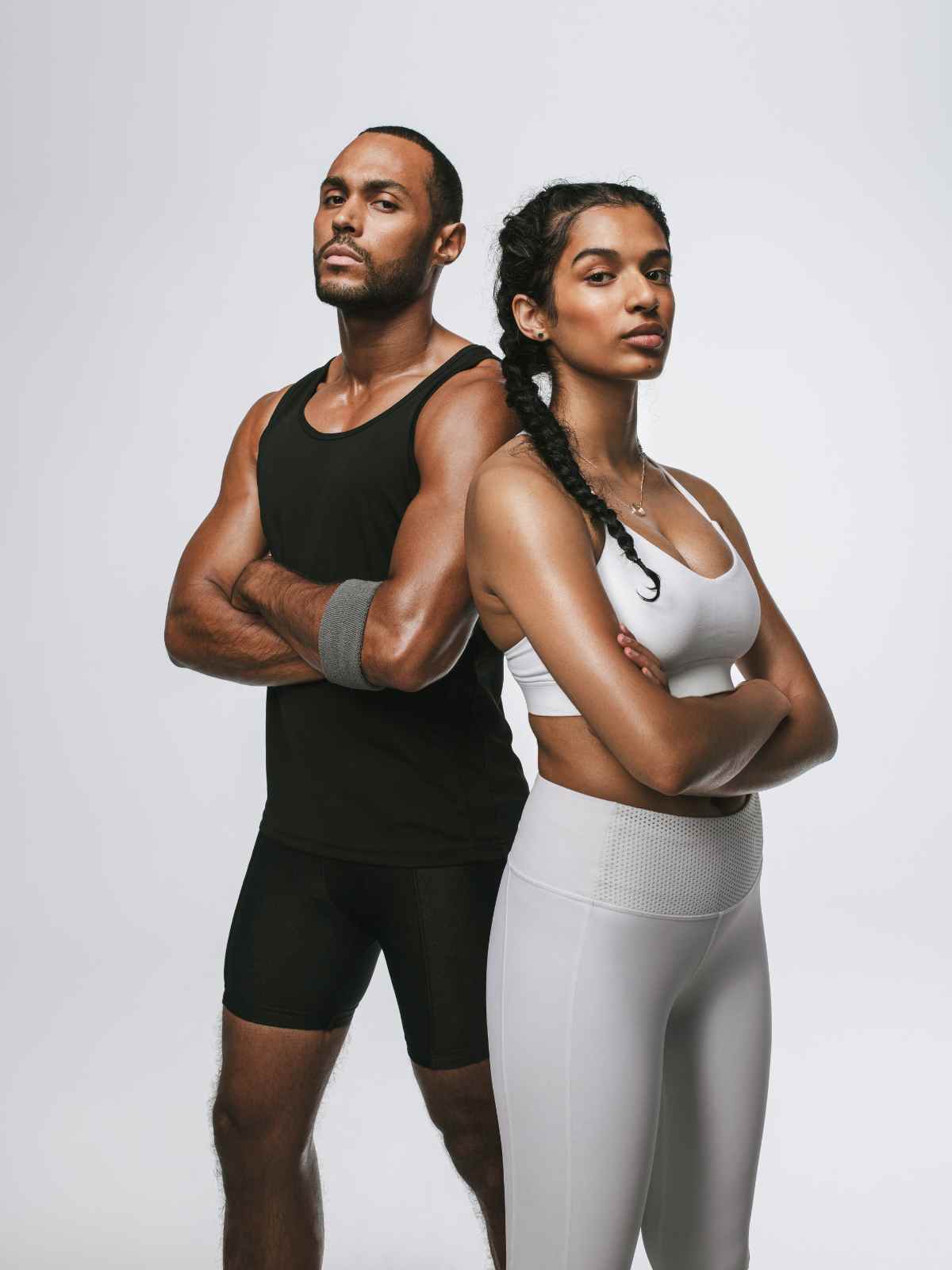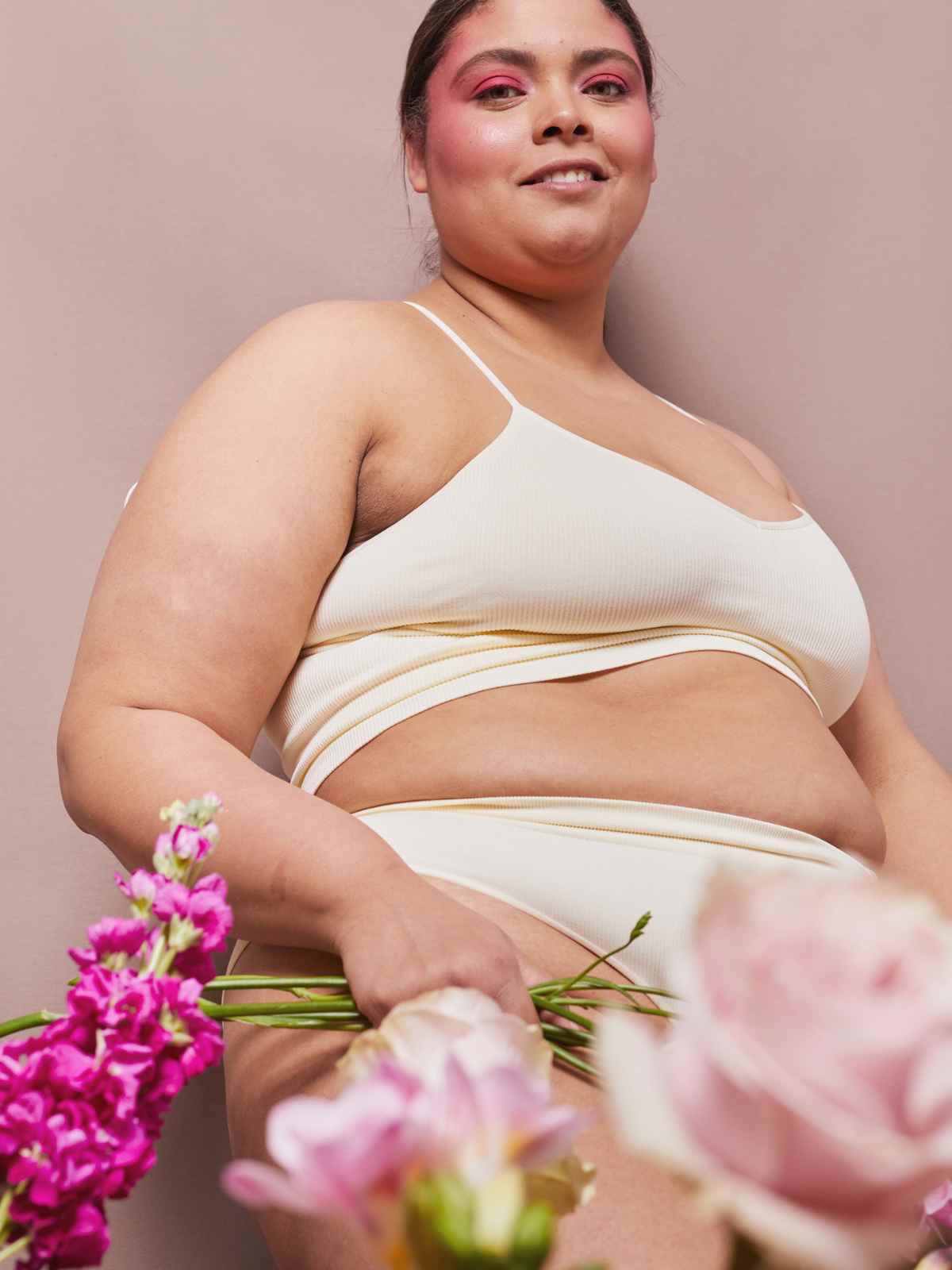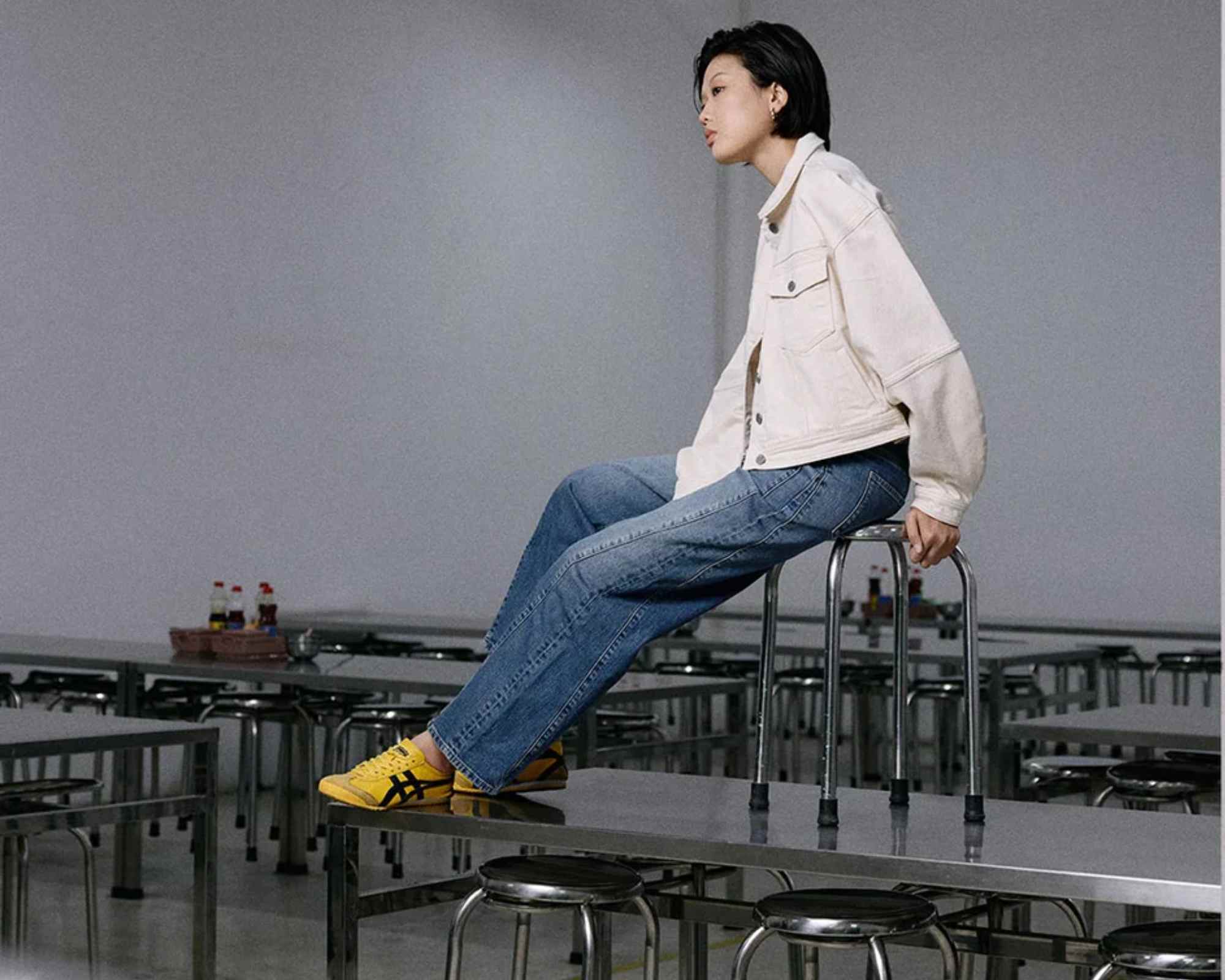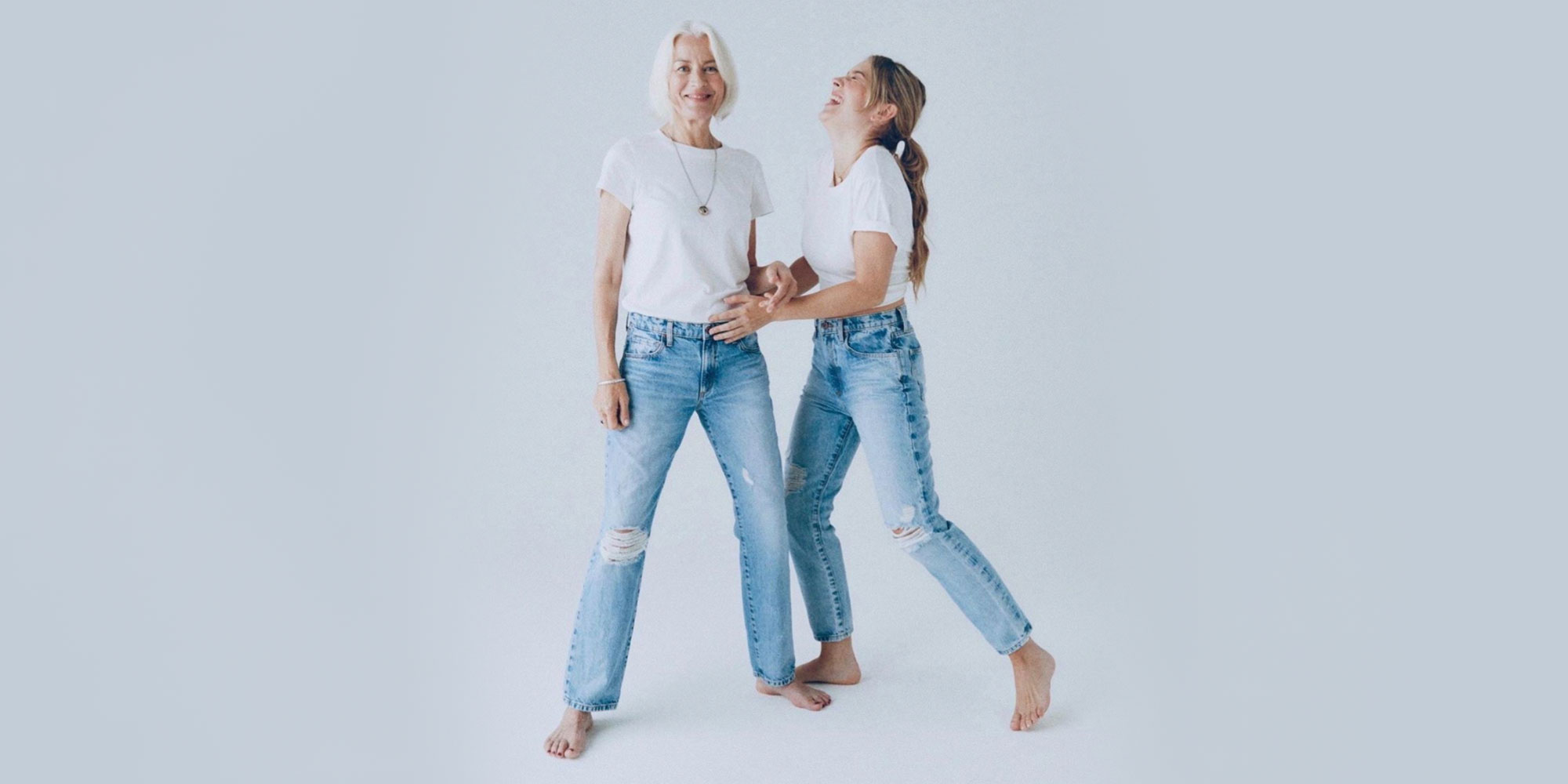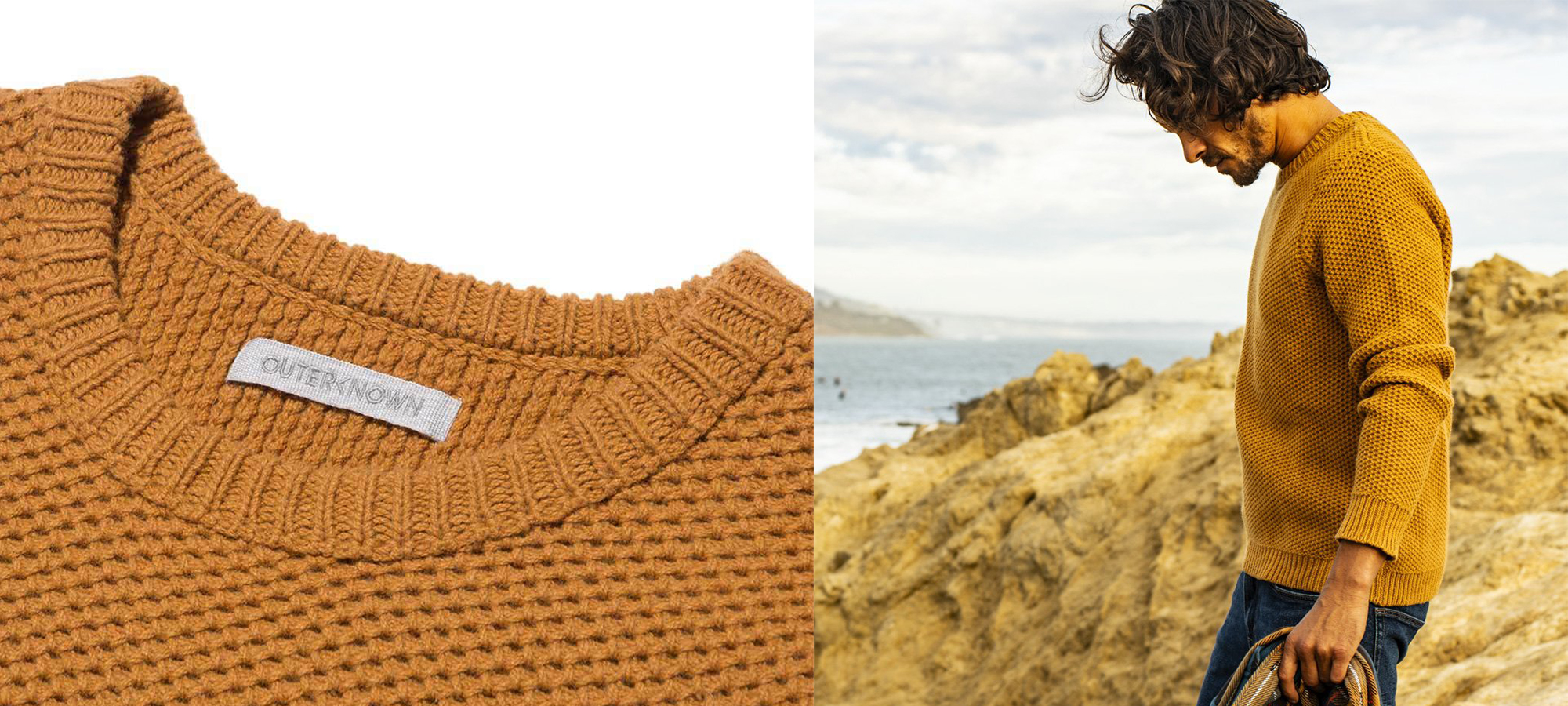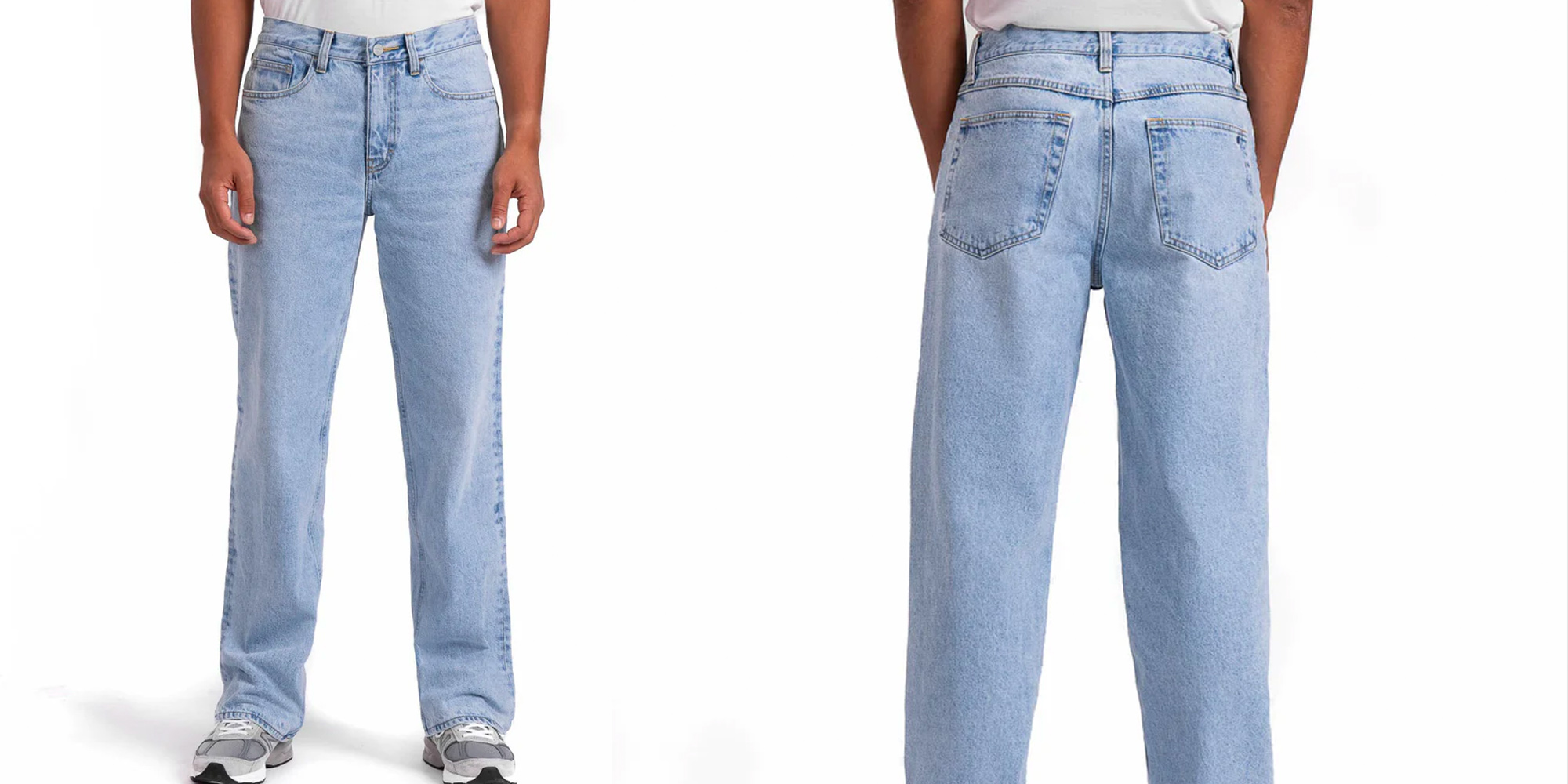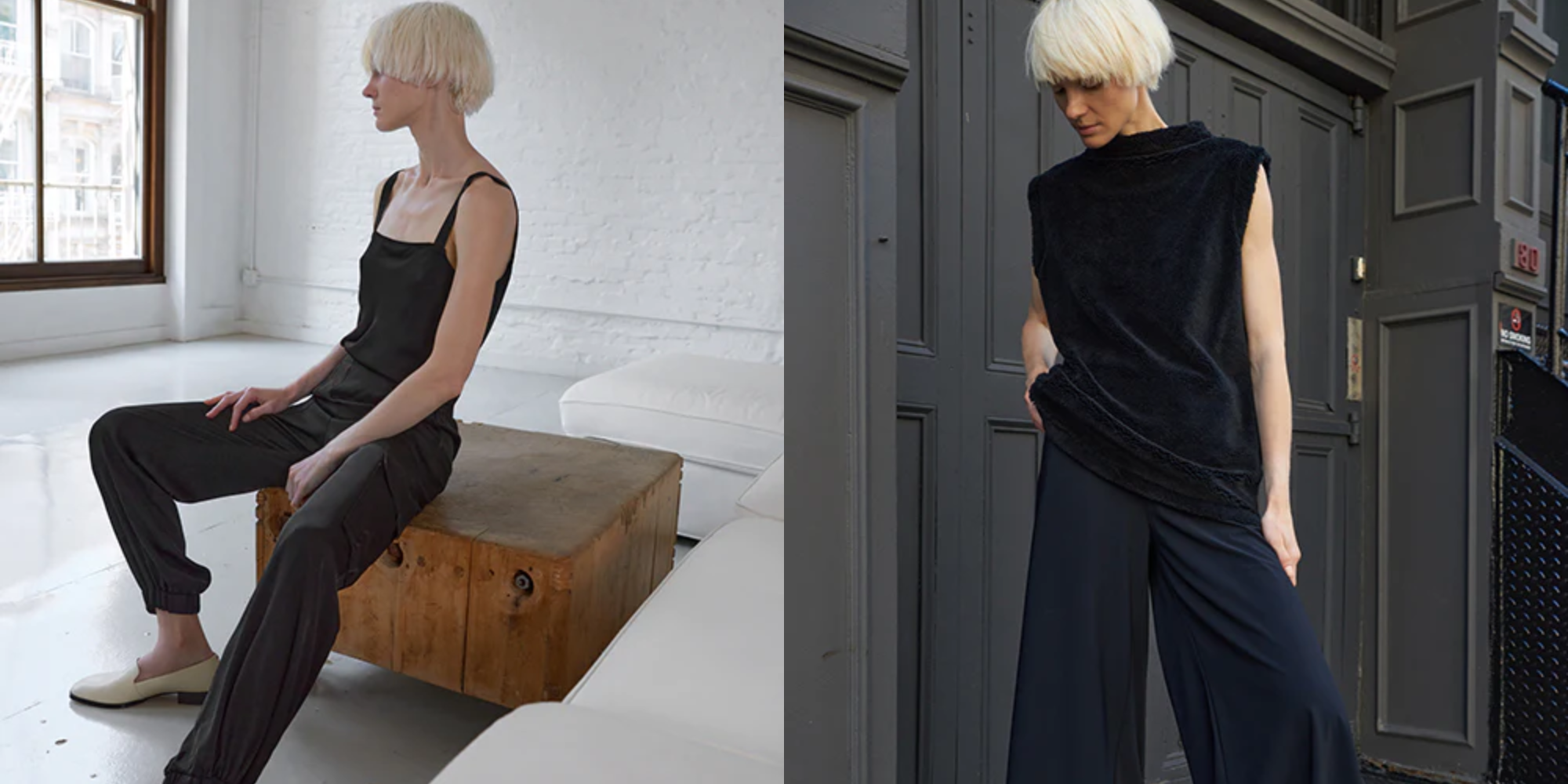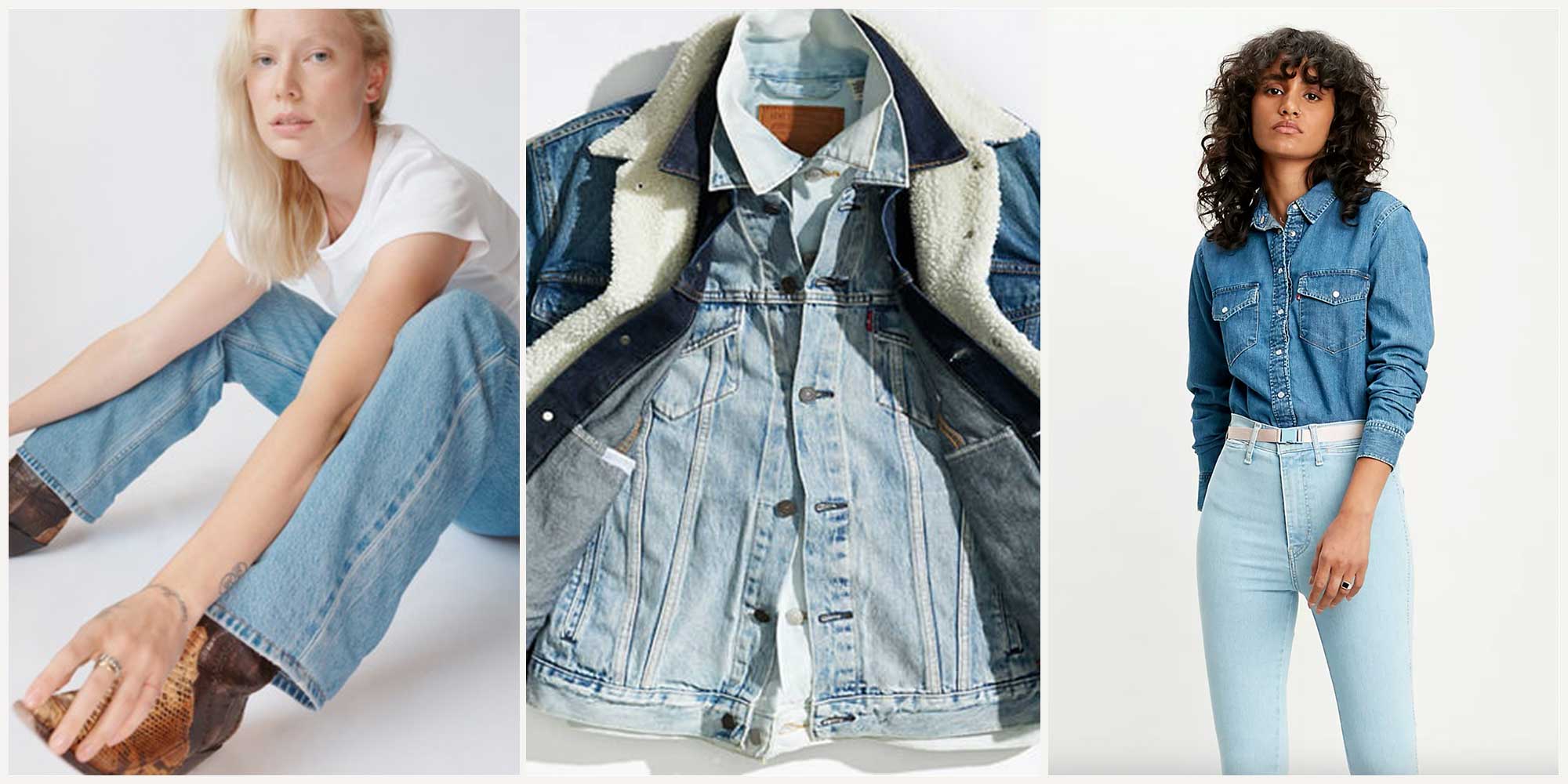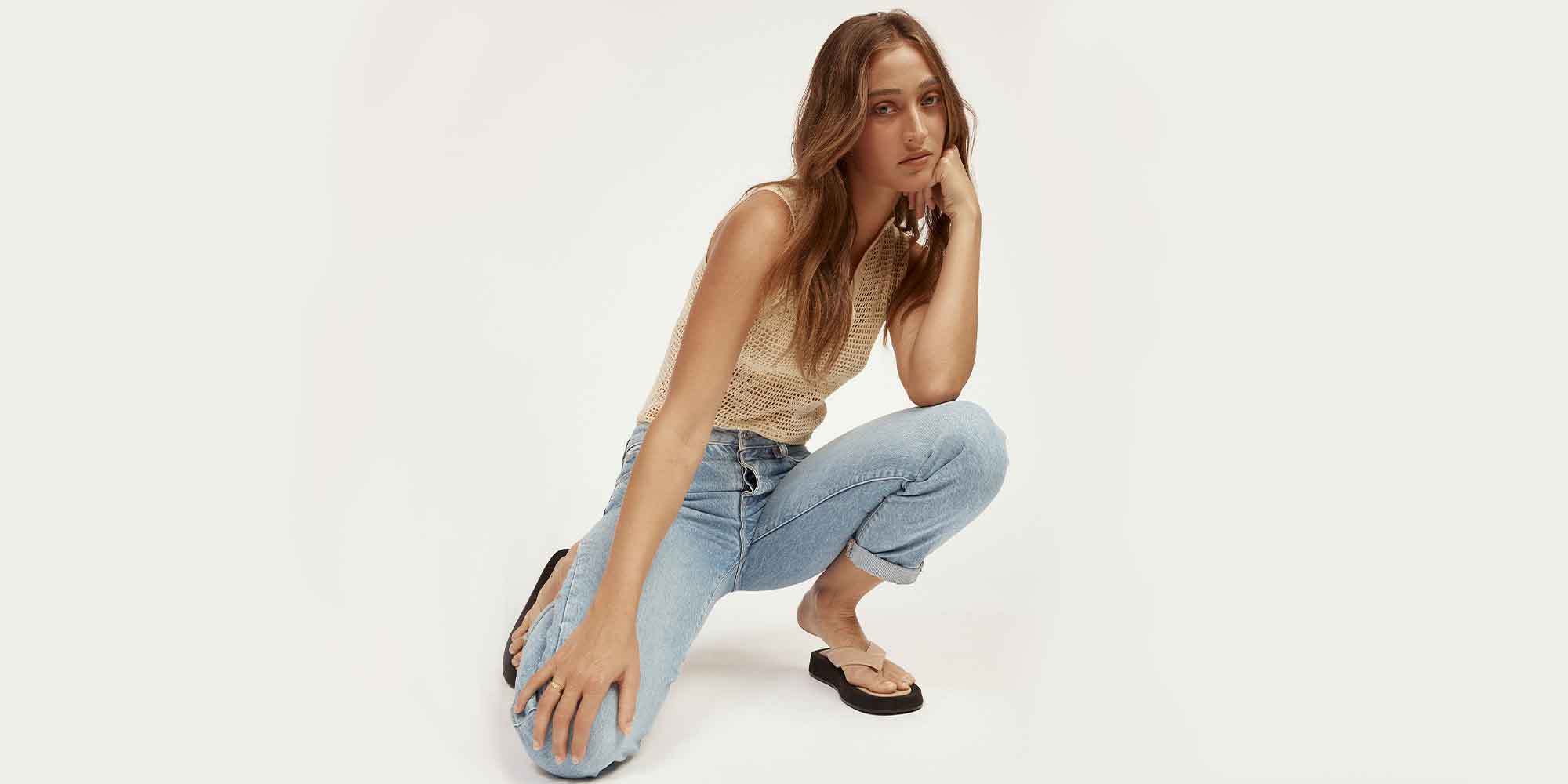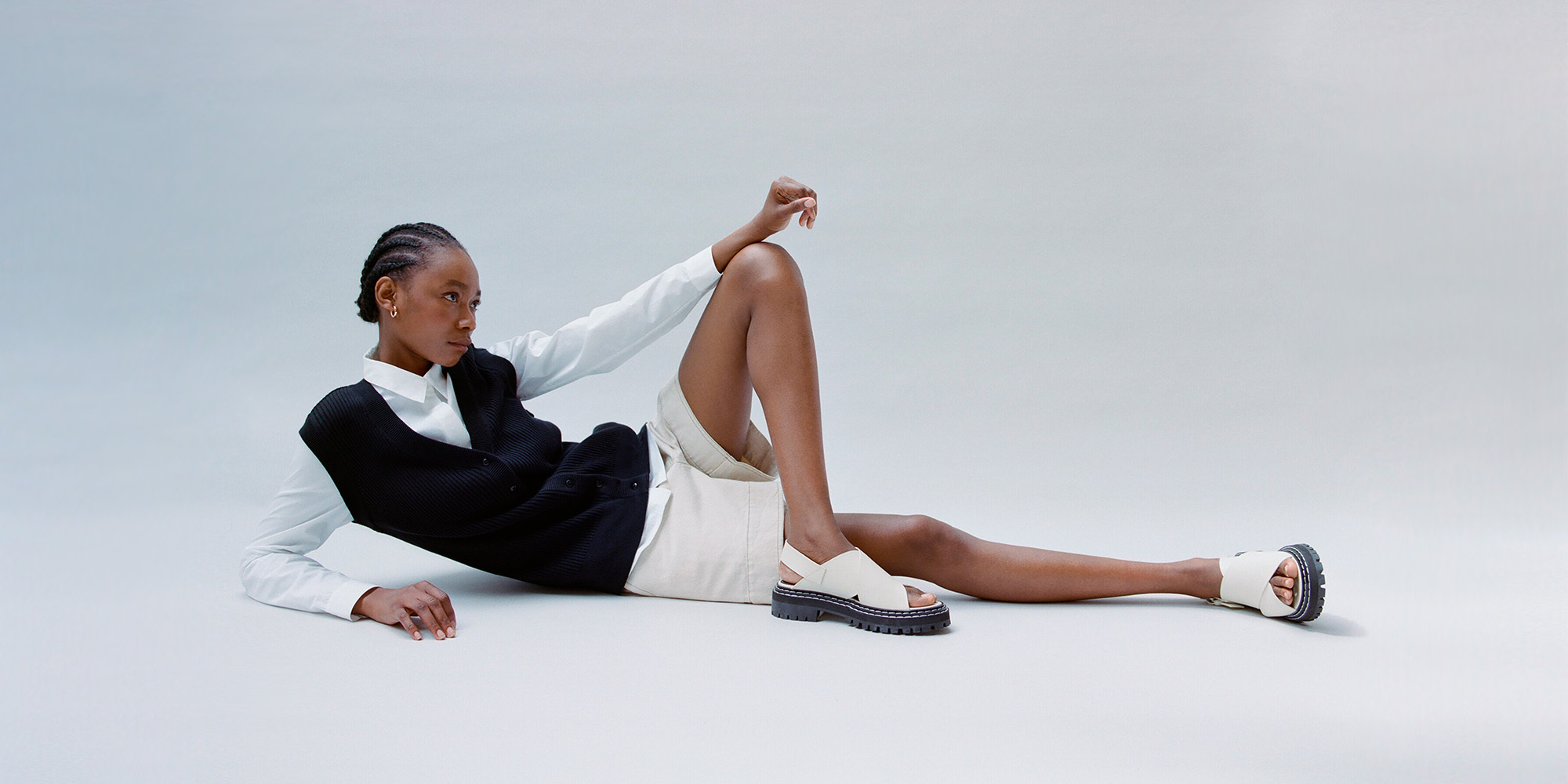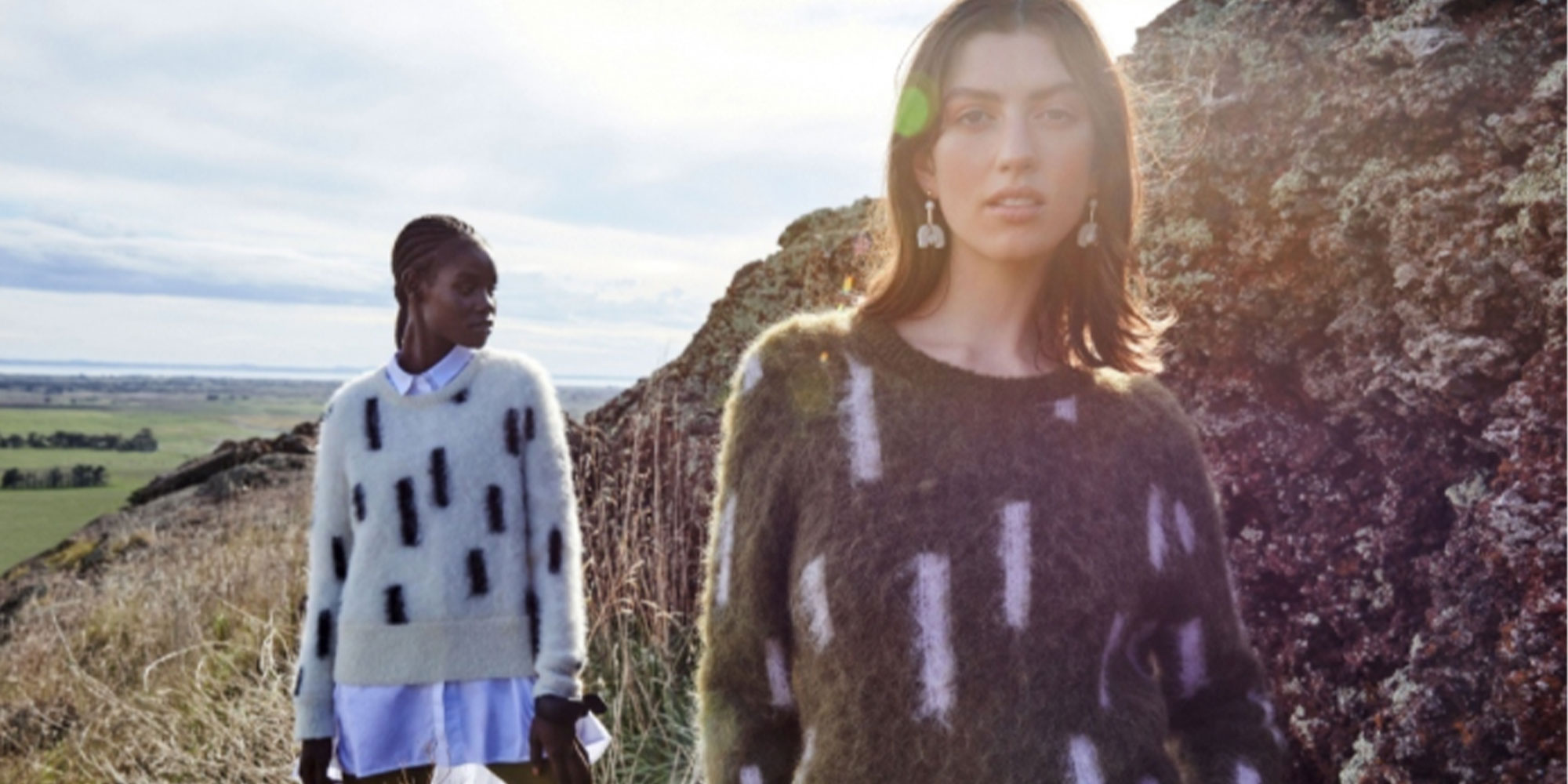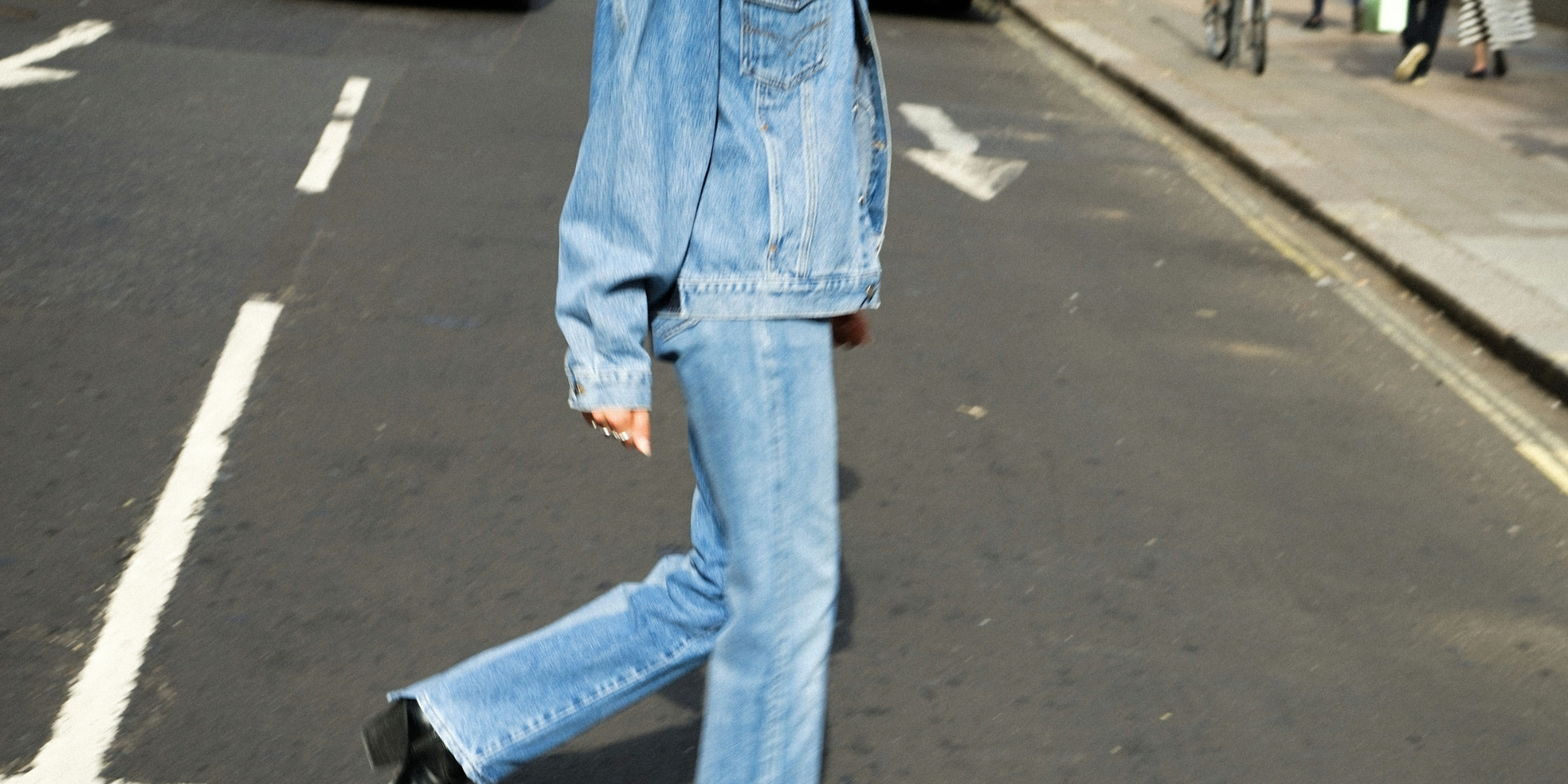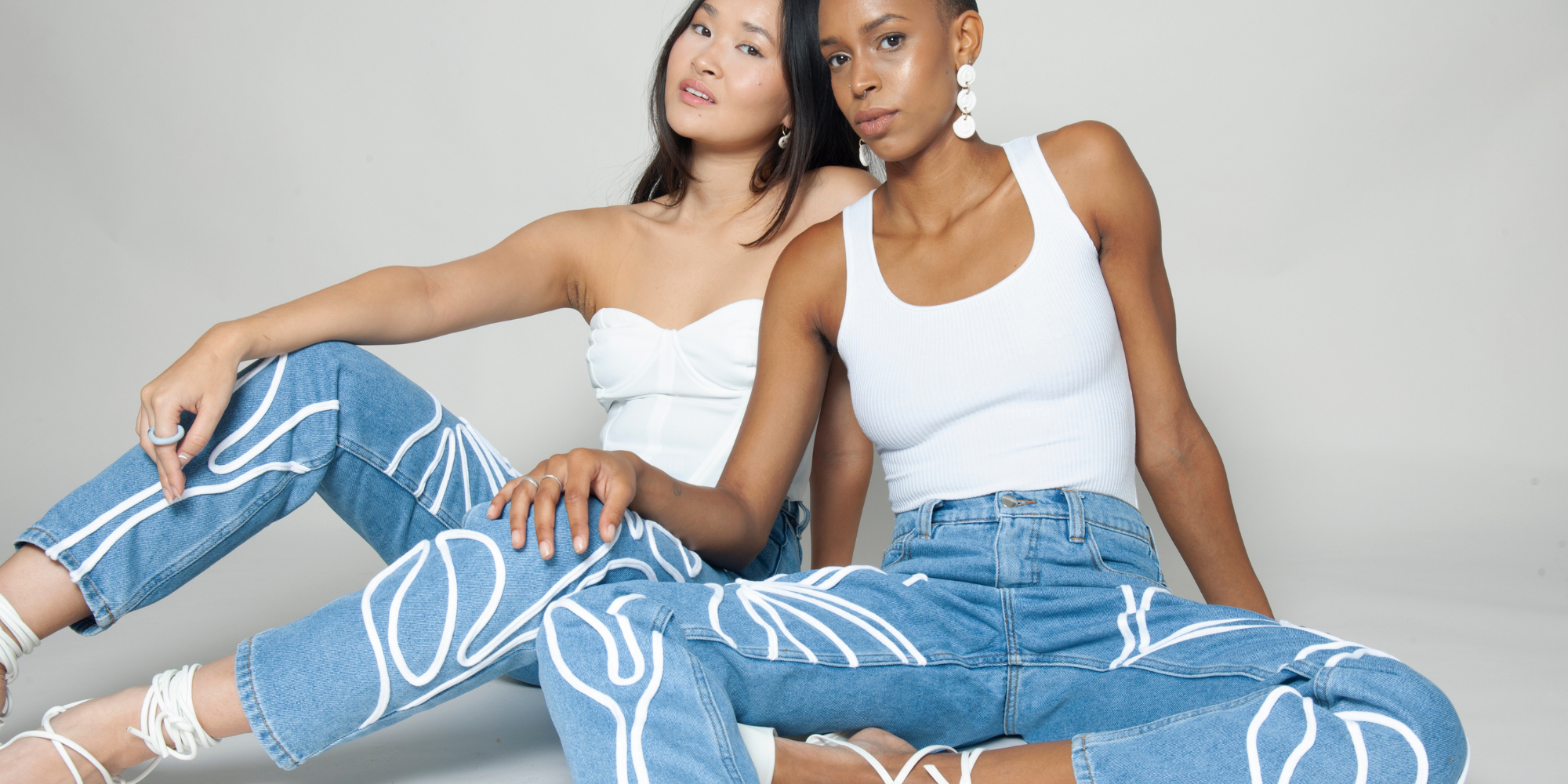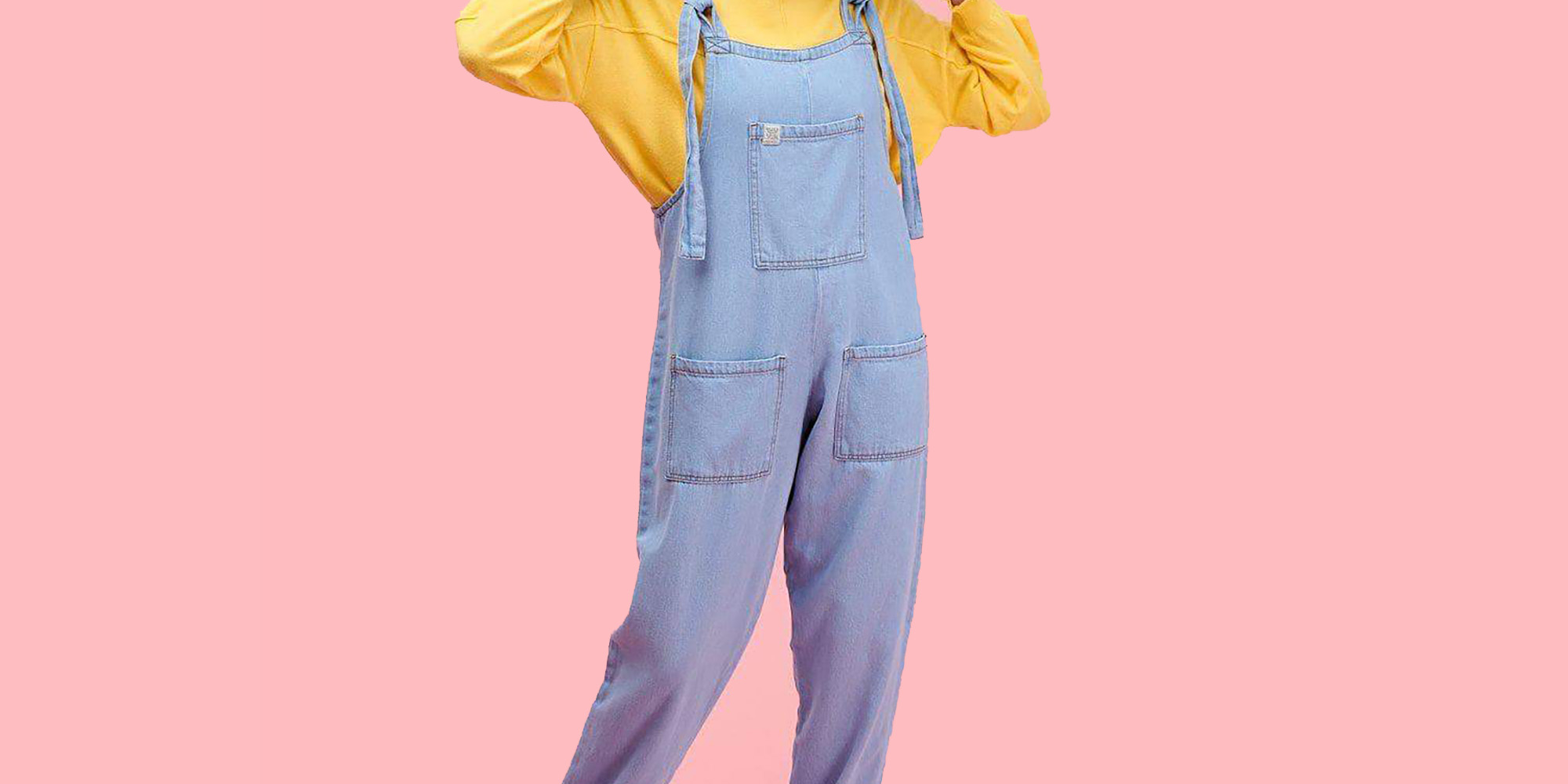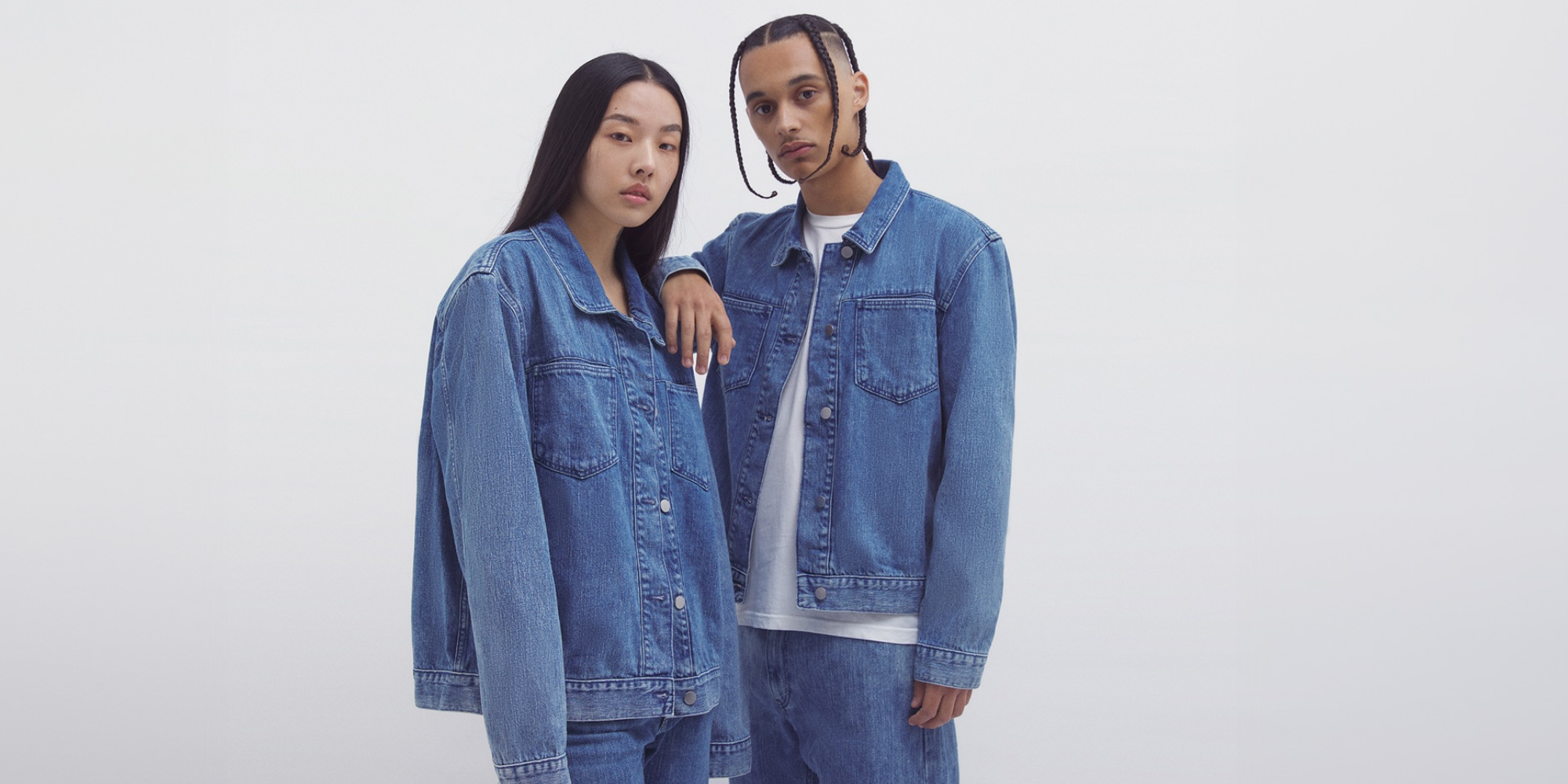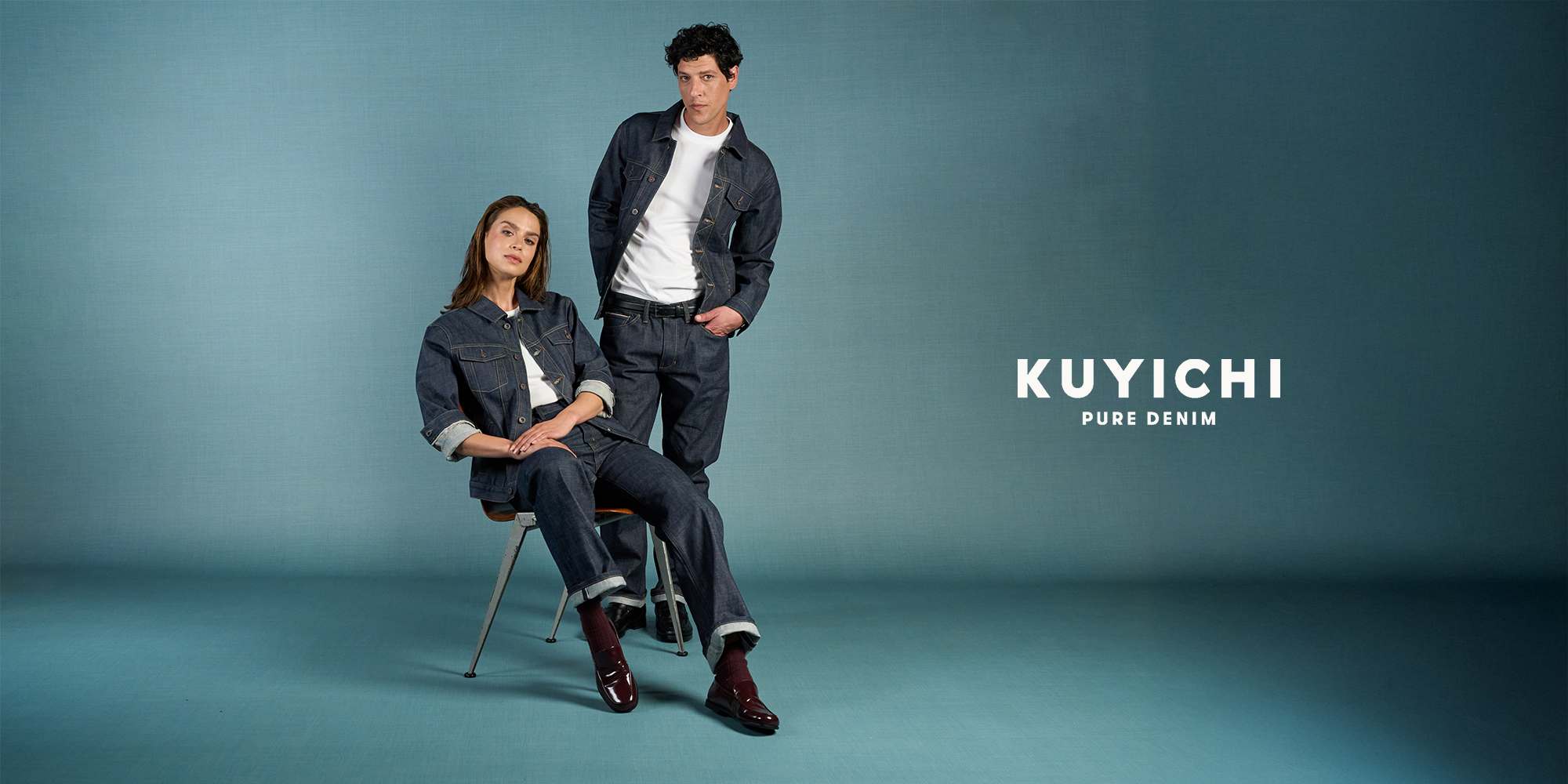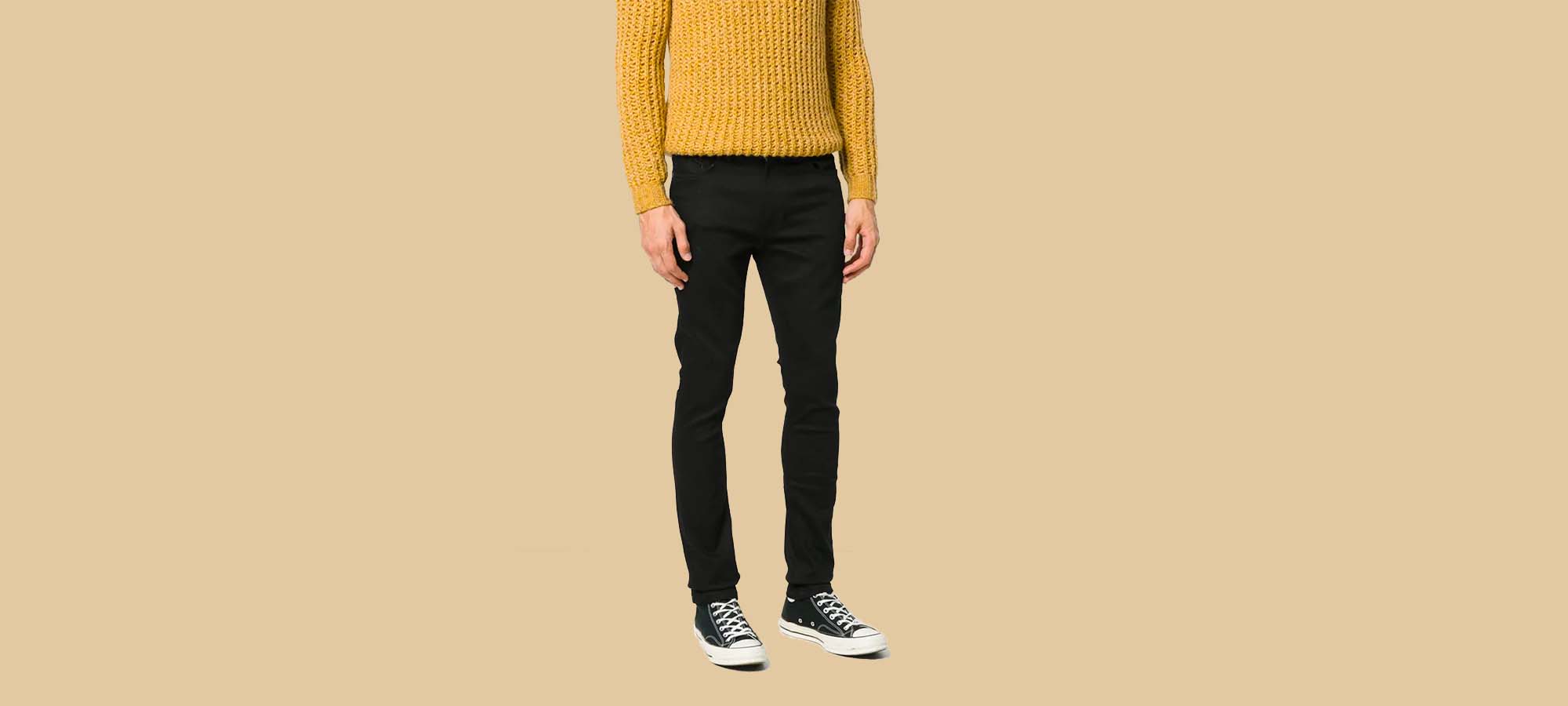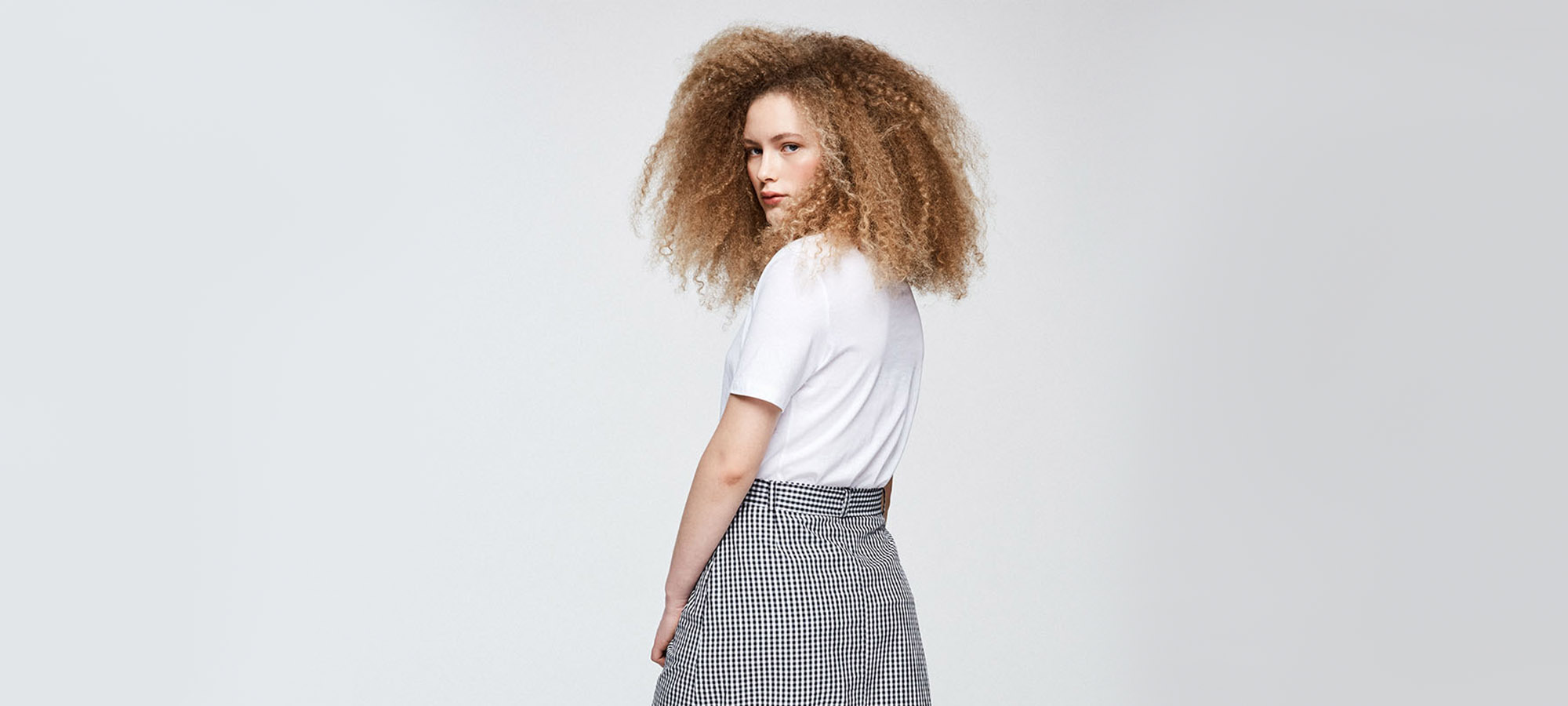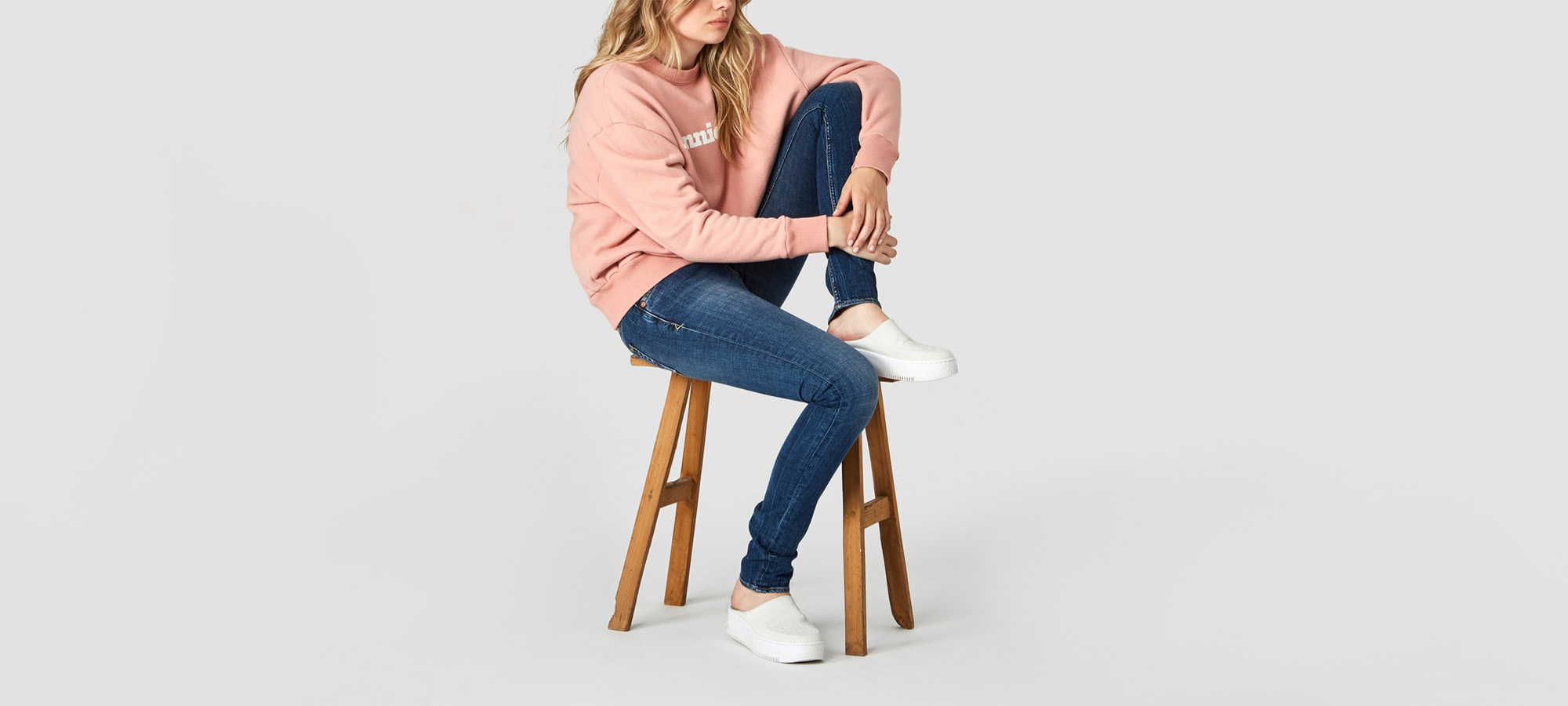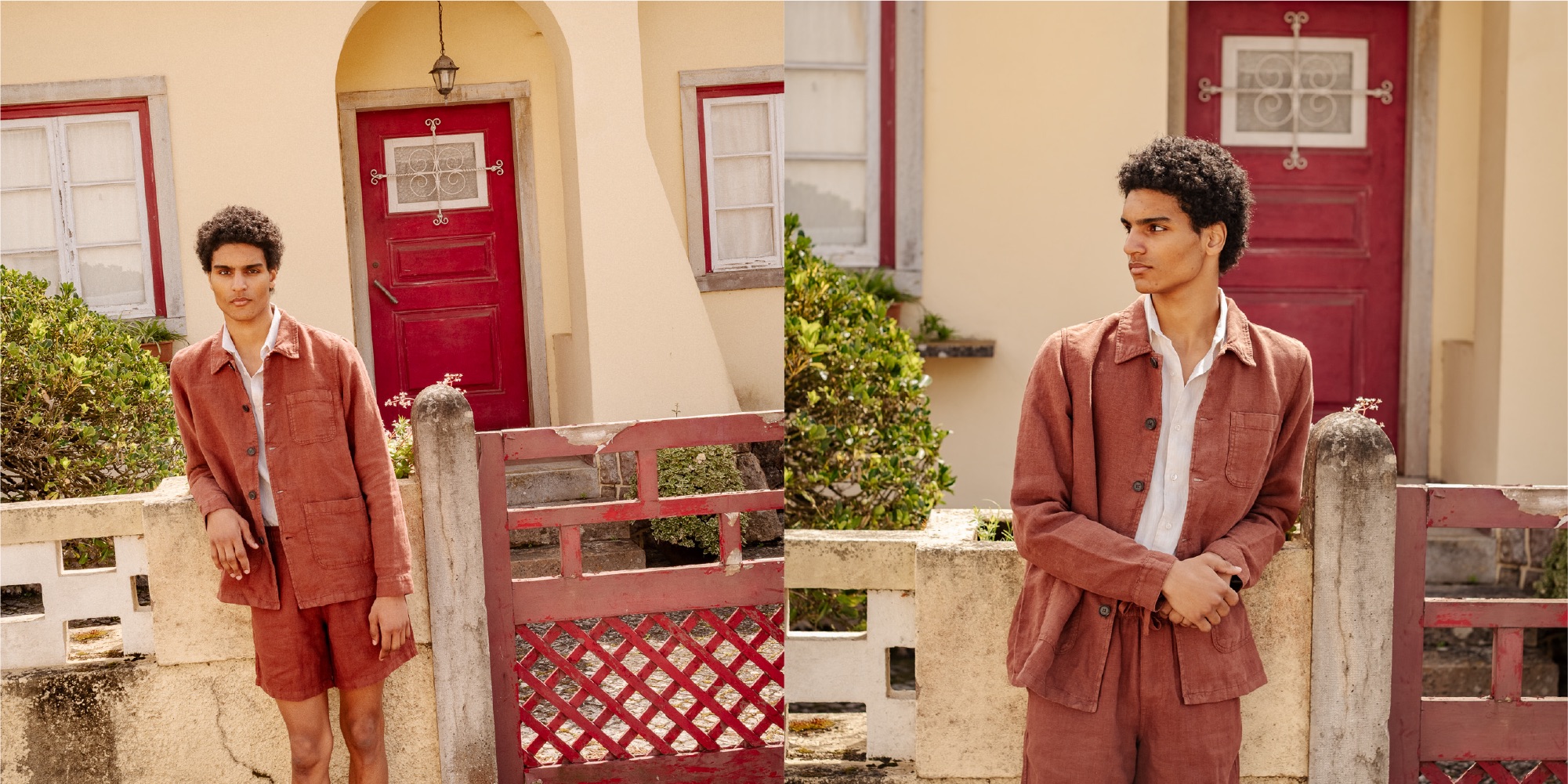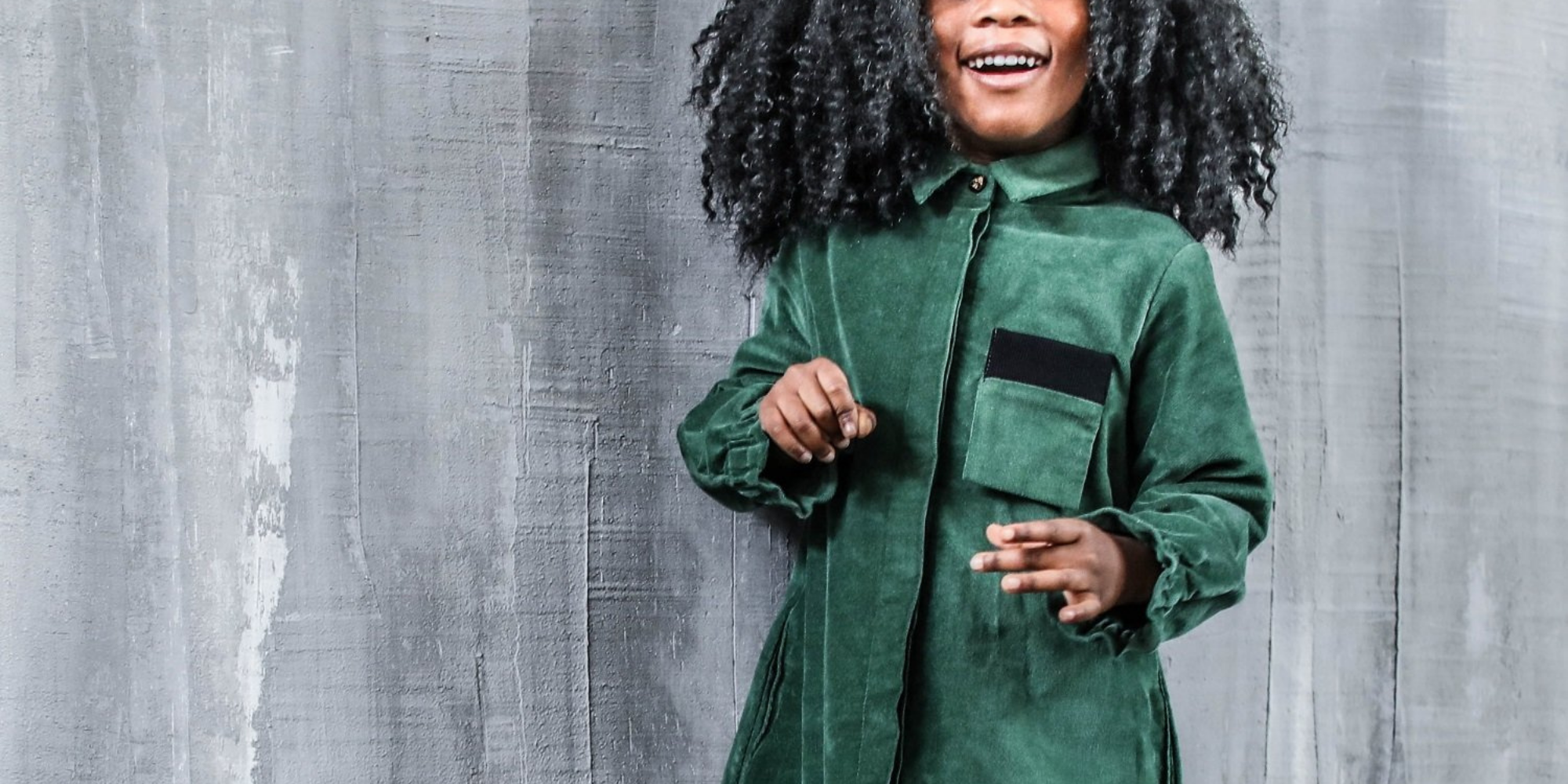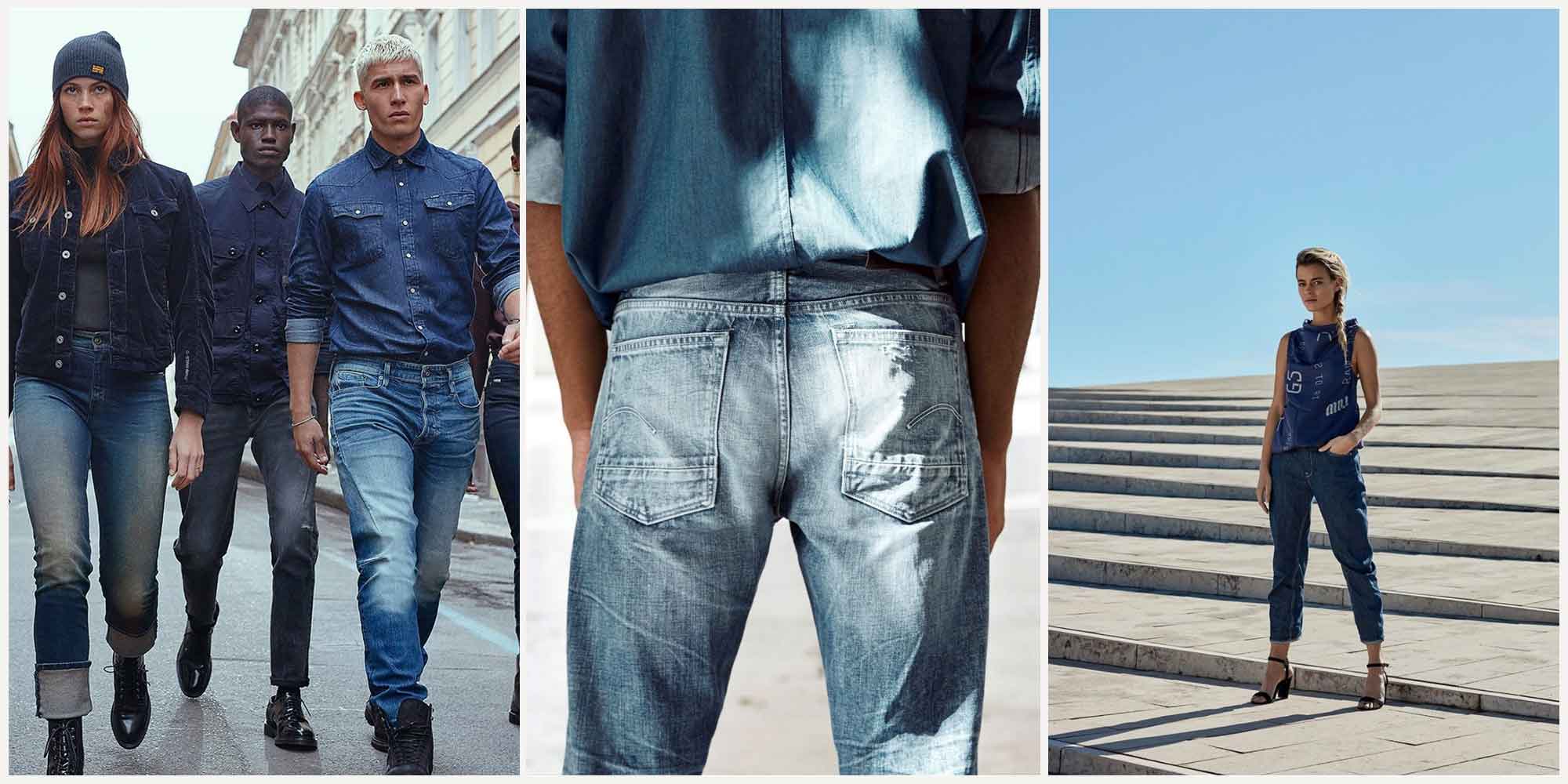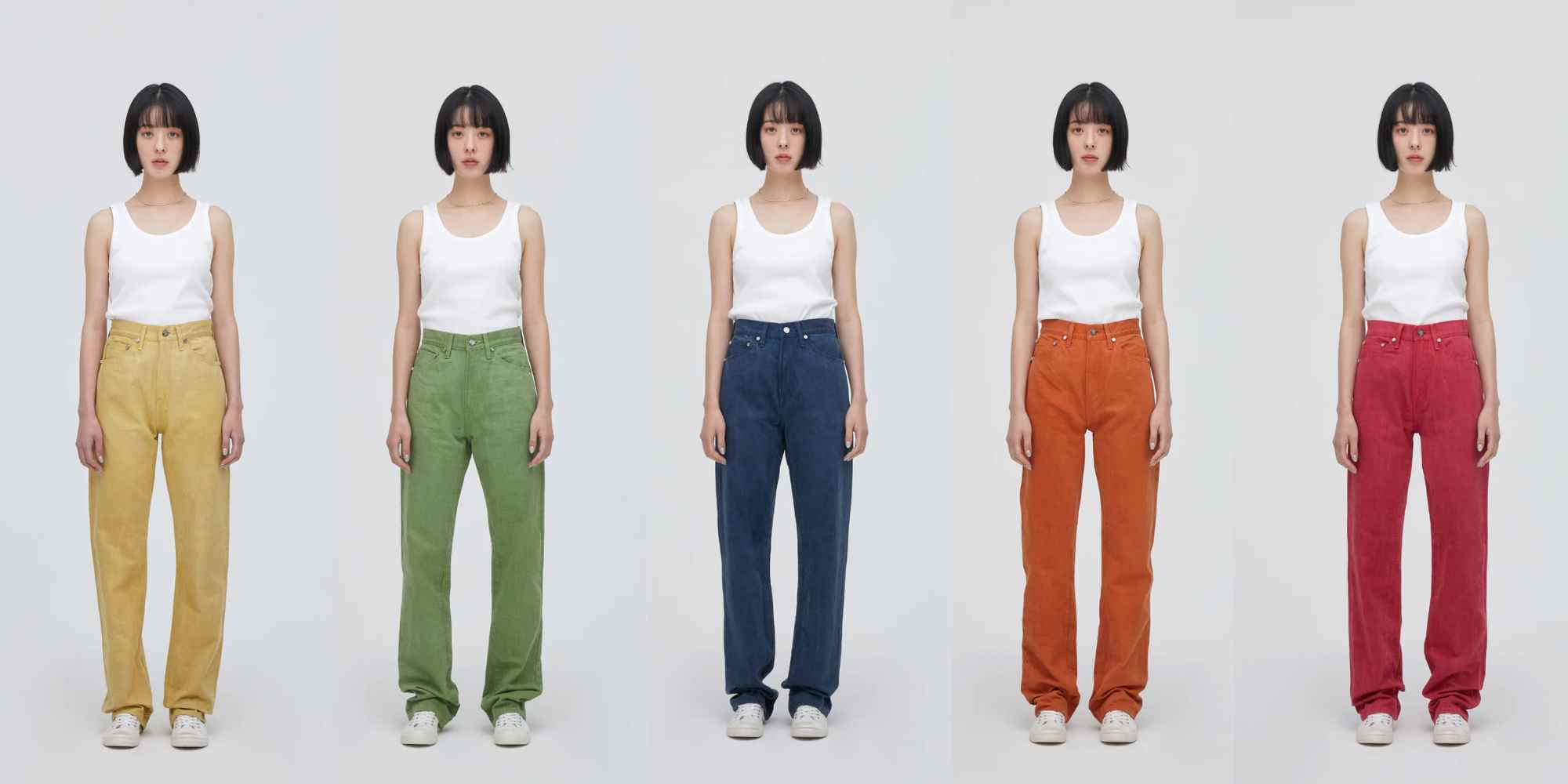Our editors curate highly rated brands that are first assessed by our rigorous ratings system. Buying through our links may earn us a commission—supporting the work we do. Learn more.
From barrel jeans to straight leg and oversized cuts, denim trends come and go, but the material, and jeans as a garment, are enduring in fashion. The twill weave will withstand plenty of wear, and a well-fitting pair can stay in your wardrobe for years. Still, as with any material, there are sustainability issues to consider. Read on to learn about them, and meet the denim brands being transparent about their impact.
Denim—from workwear to fashion trend
Jeans were originally made for workers who needed something hardy to stand up to the wear and tear of manual labour, so longevity—a key aspect of sustainable design—has long been at the heart of this popular garment. Levi Strauss, owner of a wholesale fabric house in San Francisco, and tailor Jacob Davis solidified that when they added pockets and rivets to the garment and patented the design in 1873, making the style even more resilient to intense use. Some of these early pairs survive today.
But fast forward to 2025 and a new denim style is on the runways every season—whether it’s a new cut, like the barrel, balloon, or bootcut leg, or intentionally distressed denim to resemble the wear and tear that older pairs would’ve gathered over time. Either way, many of these new garments aren’t designed to last a lifetime like the early workwear pairs were. Instead, they’re a stopgap to the next trend cycle.
How sustainable is modern denim?
Denim’s sustainability is often quantified by a much-cited statistic on how many litres of water it takes to produce a single pair of jeans. The problem is that the number is old and difficult to find the original source for, so is unreliable as fact, and it doesn’t consider the other aspects of the garment’s lifecycle, like how workers in the supply chain are treated, or how easily the item can be disposed of.
What’s certain is that a lot of energy and water are used in the manufacturing of denim materials and garments. Cotton needs to be grown and irrigated before it’s harvested and transformed into yarn, and then those yarns are dyed, usually with indigo in either synthetic or natural form (the latter requiring significantly more water). Then the yarns are woven on a loom in a twill pattern to create the denim fabric we all know, before being used by manufacturers to cut garment pattern pieces and sew them together to make a pair of jeans, a jacket, dress, and the like.
It’s a lengthy process, and many stages of denim production can have serious social and environmental consequences. From high water usage, dye and water mismanagement leading to sludge-ridden rivers, and serious labour concerns.
And then there are the cotton-blends used for contemporary denim—the ones that give your jeans stretch or make the denim feel extra soft. There are real challenges to recycling fibre blends, so if a pair of blended denim jeans can’t be reused, they’ll likely end up in landfill. Pure cotton options, on the other hand, offer easier recycling, although it’s worth noting that the hardware on denim garments can also pose a challenge to their end-of-life handling.
Denim remains a hardy and reliable material, and, cared for correctly, a quality pair of jeans can still last decades. That’s why we’re encouraging you to look at your next denim investment as a lifetime purchase, and introducing some of the brands working to create great, and more sustainable denim jeans, jackets, and more.
In North America, for instance, there’s Triarchy (US)—a brand producing what it says is the world’s only plastic-free stretch denim. Further down the guide, from Oceania, check out some more affordable options from Afends (AU). Meanwhile in the UK, E.L.V Denim is leading the way in localised production and upcycling deadstock denim. Finally, for readers who prefer menswear, ISTO. (Portugal) and ASKET (Sweden) make timeless styles for everyday wear. Skip to your region below.
Discover more sustainable denim brands from around the world |

